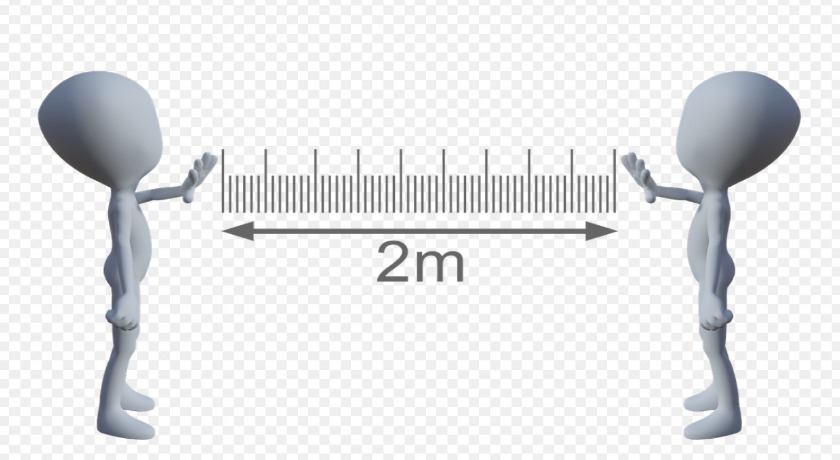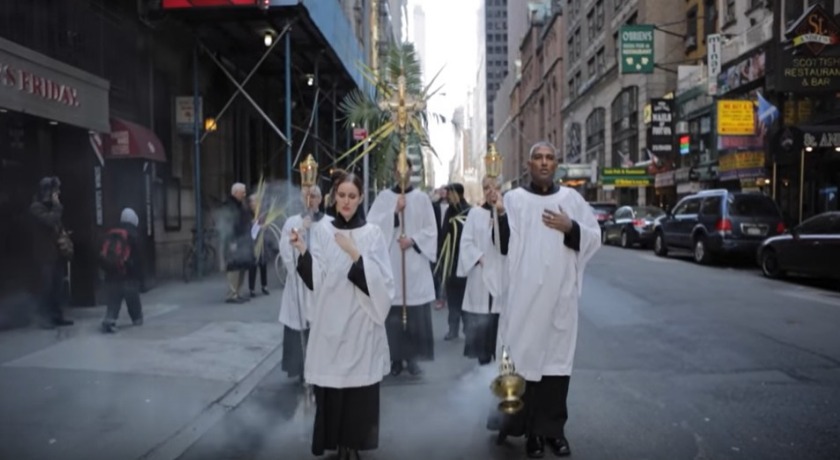 As the UK population practises a range of measures to social distance from each other, Roo Stewart, Programme Support Officer for the United Reformed Church’s (URC) Church and Society work and member of the Joint Public Issues Team, uses Matthew 21:1-17 to ask if Jesus’ triumphal entry into Jerusalem is still relevant in this reflection for Palm Sunday.
As the UK population practises a range of measures to social distance from each other, Roo Stewart, Programme Support Officer for the United Reformed Church’s (URC) Church and Society work and member of the Joint Public Issues Team, uses Matthew 21:1-17 to ask if Jesus’ triumphal entry into Jerusalem is still relevant in this reflection for Palm Sunday.
Palm Sunday for churches often means beginning Holy Week in grand style: churches across the world engage in processions, waving palm branches and shouting or singing “Hosanna!” Last year, I watched a church in the centre of New York City on YouTube taking a joyful march around Times Square, complete with a slightly self-conscious congregation, clergy, trumpet players and choir (robes and all), much to the astonishment of crowds of tourists, hot-dog sellers, would-be Marvel superheroes and cowboy-booted buskers.
On second thoughts, perhaps that traditional Palm Sunday walk of witness wasn’t all that out of place in such a melting pot.
 This year, of course, our churches will remember the events of the first Palm Sunday in an altogether different way. Individually, we will be socially or at least physically distant from those beyond our own four walls. But, the Church will still proclaim the King of Compassion. You might wonder how we can, when we cannot meet in person? The astonishing thing, I would gently suggest, is that in our dispersed state the world might well see more of the Jesus we follow, as we demonstrate Jesus’ compassion not through procession and crowd, ritual and song, but through selfless acts of kindness, humility, justice and peace.
This year, of course, our churches will remember the events of the first Palm Sunday in an altogether different way. Individually, we will be socially or at least physically distant from those beyond our own four walls. But, the Church will still proclaim the King of Compassion. You might wonder how we can, when we cannot meet in person? The astonishing thing, I would gently suggest, is that in our dispersed state the world might well see more of the Jesus we follow, as we demonstrate Jesus’ compassion not through procession and crowd, ritual and song, but through selfless acts of kindness, humility, justice and peace.
Matthew’s retelling of the original event takes trouble to point out how Jesus’ entry into Jerusalem fulfilled the Hebrew scriptures:
“Rejoice greatly, O daughter Zion!
“Shout aloud, O daughter Jerusalem!
“Lo, your king comes to you;
“triumphant and victorious is he,
“humble and riding on a donkey ...” (Zechariah 9:9, NRSVA)
The context of Zechariah’s words has deep parallels with Christians today: a displaced people mourns not being able to celebrate their faith together in one building.
Strong’s Concordance suggests a beautiful shade of meaning for “rejoice” in the Hebrew language, “To spin around, under the influence of any violent emotion”. I can imagine the joyfulness which will resound through our church buildings when we are able to meet again (some might even spin with delight!). But I wonder, will we be able to celebrate more than just the re-establishment of a cherished routine as we at last break bread together?
 Can we celebrate how our faith has been demonstrated in our kindness to our next-door neighbour? Can we rejoice at how God’s love has been made obvious in the way that we have given time and money to help those in more desperate need than ourselves? Or how we have been able to reach out to the hurting and bereaved with a listening ear and an open heart? Perhaps we will also rejoice that which we were able to witness: “The reason I do this is because it’s the right thing to do: it’s what Jesus would do.”
Can we celebrate how our faith has been demonstrated in our kindness to our next-door neighbour? Can we rejoice at how God’s love has been made obvious in the way that we have given time and money to help those in more desperate need than ourselves? Or how we have been able to reach out to the hurting and bereaved with a listening ear and an open heart? Perhaps we will also rejoice that which we were able to witness: “The reason I do this is because it’s the right thing to do: it’s what Jesus would do.”
If we’re not spinning as we rejoice, Matthew 21:10 contains another motion: “When he [Jesus] entered Jerusalem, the whole city was in turmoil.” The word rendered “turmoil” here suggests a wobbling or trembling, like you would imagine in an earthquake, where the fabric of familiarity and the routine is literally ripped apart.
In Matthew’s account, it was Jesus’ triumphal entry that caused the deepest excitement: I wonder if we will spot how the mission and ministry of Jesus, through his Church, is still exciting people today?
Later sections of the prophecy of Zechariah demand purity in God’s house and foreshadow the final part of our reading: Jesus overturning the tables of the traders in the Temple. The Temple of God was to be a house of prayer, not greed and extortion. Under the New Covenant, the people of God form the temple of God (1 Corinthians 6:19). Is Jesus still turning tables of injustice and exclusion today, as we do all we can to support those in need around us? And is God’s Temple truly formed from living stones: a people of prayer?
If Jesus, the king of compassion, arrived in your street today, on the modern equivalent of a donkey, I wonder what he would do first? Would the street’s inhabitants notice, as they gaze from behind glass or stay two metres from others as they emerge for some exercise?
 In a very special way of course, Jesus has already arrived in your street as those of us who try to walk the way of Jesus today bring his presence into every place we go.
In a very special way of course, Jesus has already arrived in your street as those of us who try to walk the way of Jesus today bring his presence into every place we go.
As we enter a very different kind of Holy Week, I invite you to recapture that sense of wonder and excitement that Jesus’ presence brings into the lives of those who encounter him even, as necessary this year, at a distance.
Jesus approaches humanity as a victorious rescuer, able to turn the tables of injustice, yet certainly humble: mindful of others, aware of hardship, weeping for those he knows face difficult times ahead. Whether spinning, shaking, weeping or just about hanging on, let us choose to walk the way of Jesus today, even though at times we might feel it is a path of hardship and sorrow, for we know that, eventually, by God’s grace, that road will lead to life.
Find out what ideas, resources and stories the Joint Public Issues Team has to enable you to help those around you during the COVID-19 outbreak here.
Picture: (1) A still of The Church of St Mary the Virgin on a Palm Sunday procession in New York City's Times Square. The Church of St Mary the Virgin/YouTube. (2) An example of social distancing measures. Pixabay. (3) An isolated person. Kristina Tripkovic/Unsplash. (4) A still of The Church of St Mary the Virgin on a Palm Sunday procession in New York City's Times Square. The Church of St Mary the Virgin/YouTube
Published 3 April 2020




